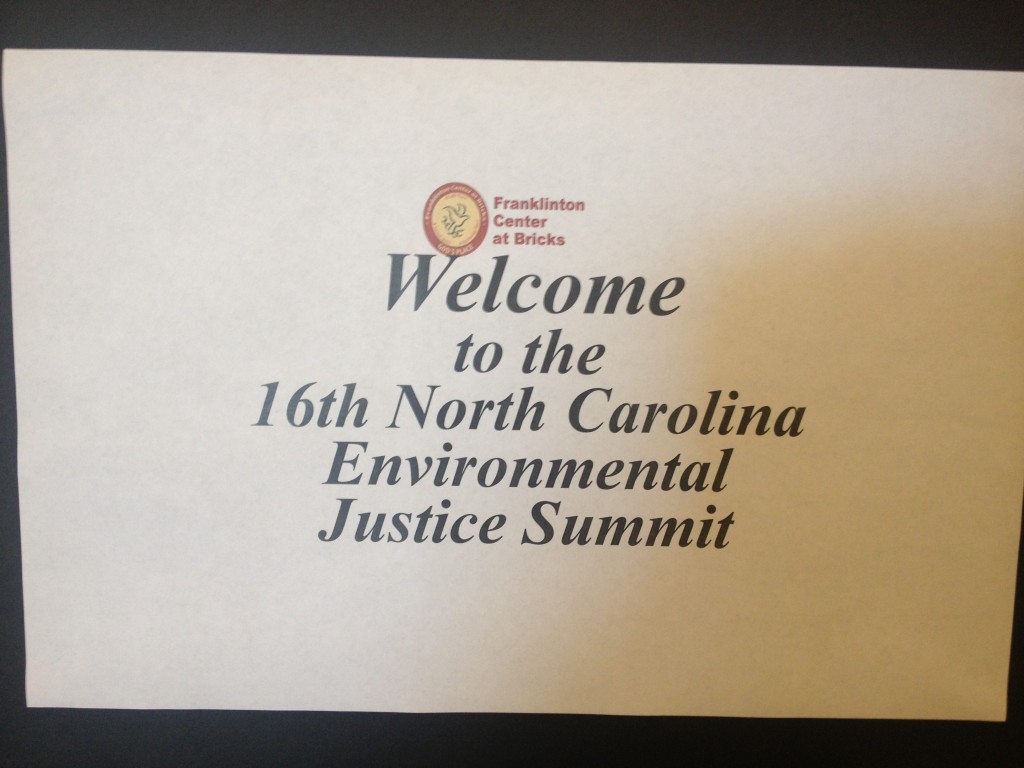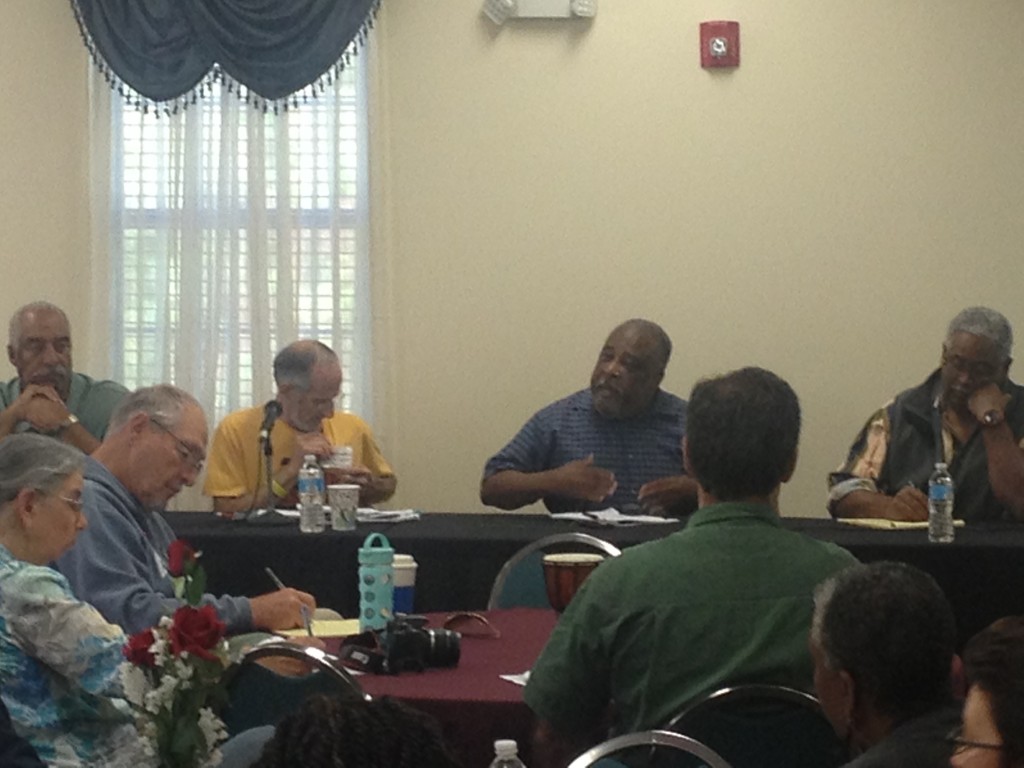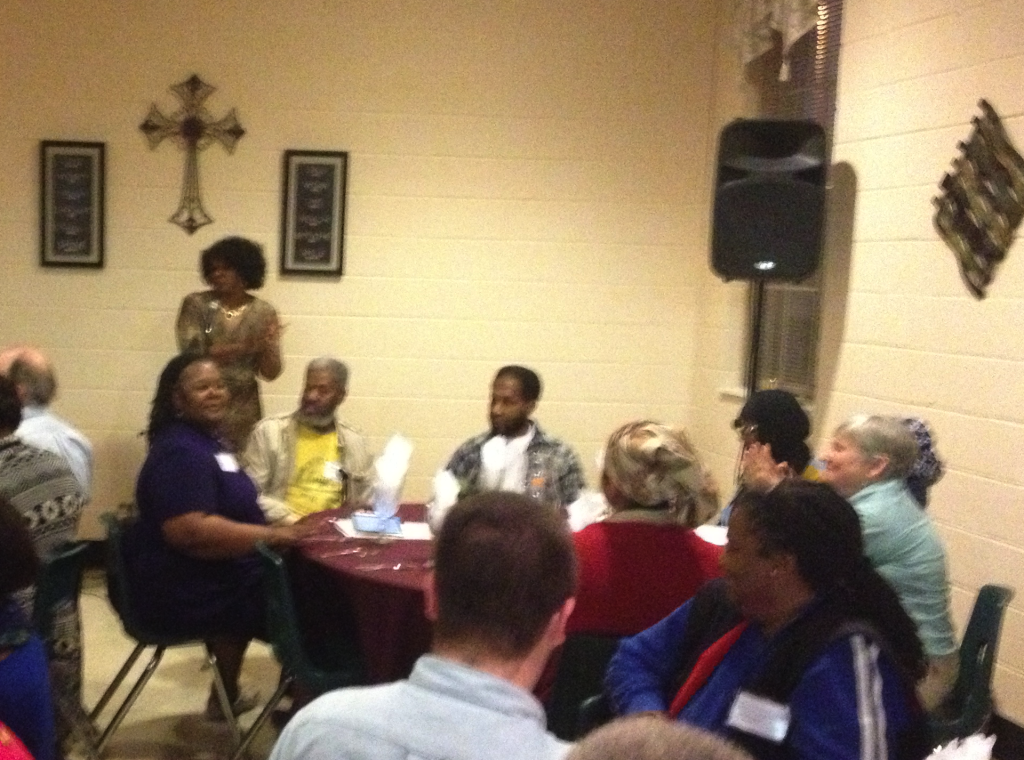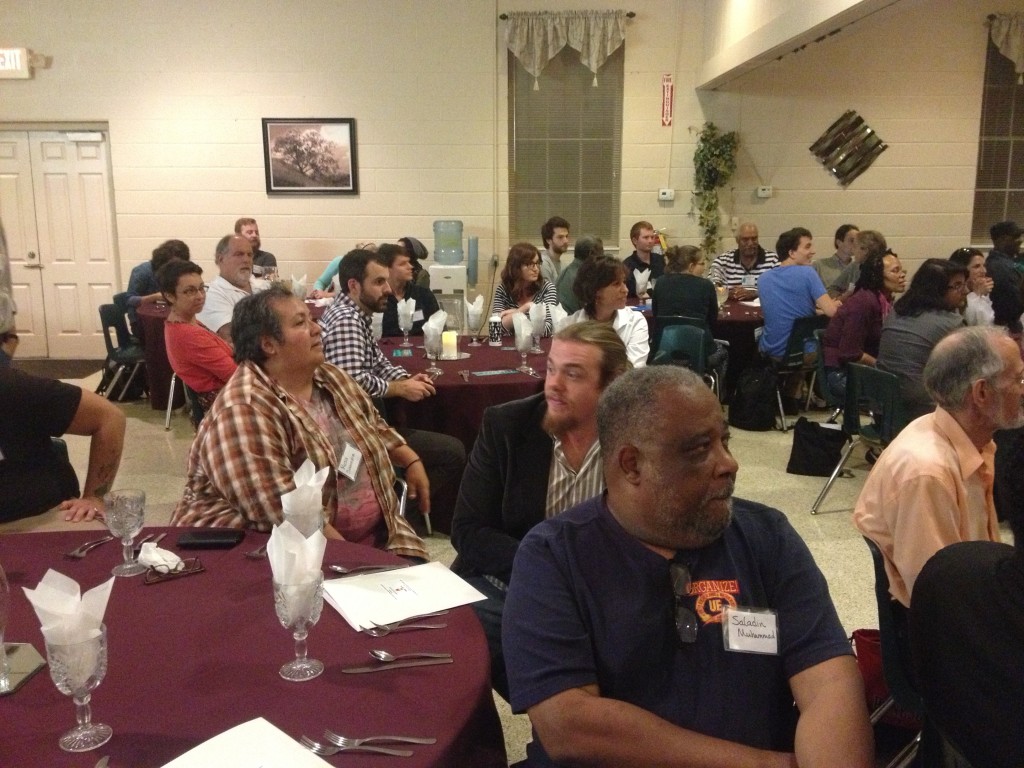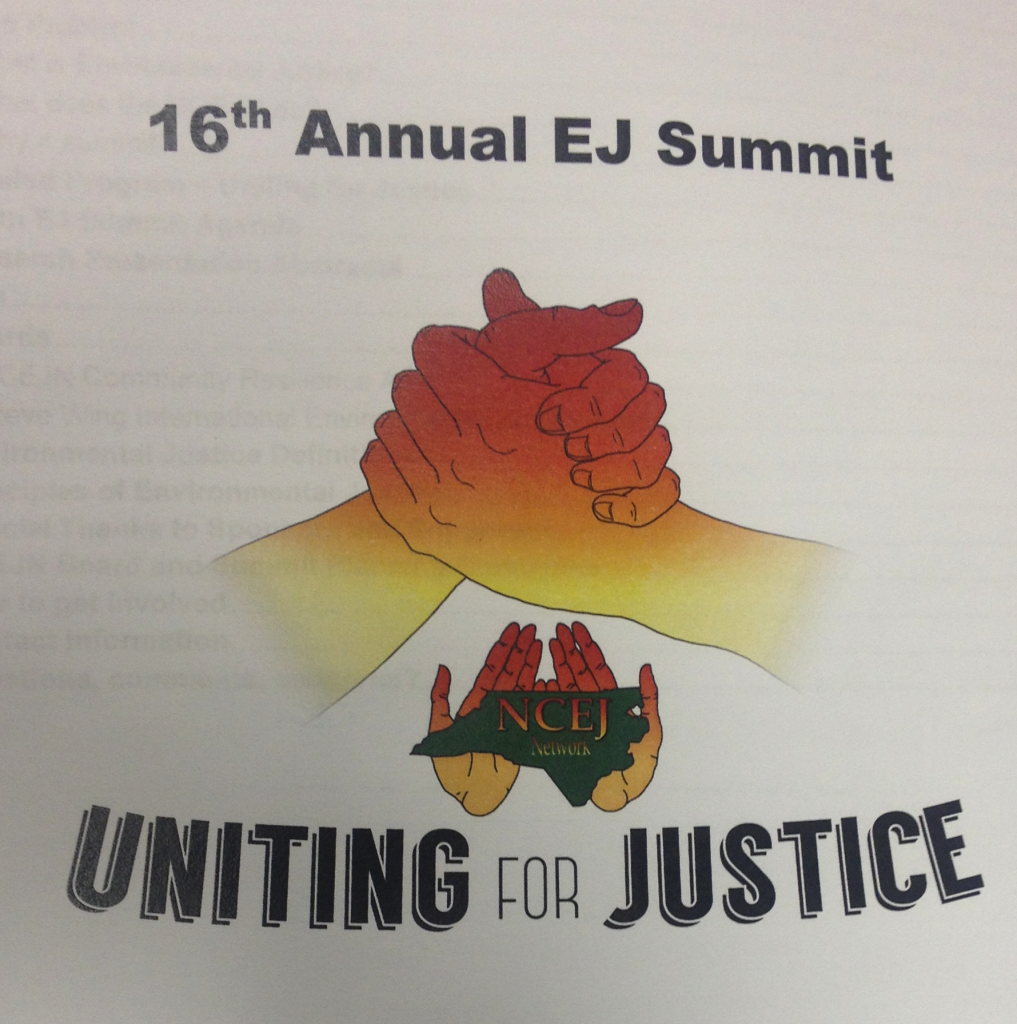Report on North Carolina Environmental Justice Network Summit
Report on North Carolina Environmental Justice Network Summit
October 17-19, 2014
North Carolina–
The 16th Annual SUMMIT on Environmental Justice and Climate Justice was organized and held in Whitaker, North Carolina by the North Carolina Environmental Justice Network (NCEJN). The SUMMIT was held at the historic Franklinton Center at BRICKS school, and old Slave plantation turned into a school after the political emancipation of slaves, and stands today as a place where many grassroots social movements meet.
More than 200 people attended, participated, shared and came out with a stronger commitment to the struggle to dismantle environmental racism in OUR LIFETIME. The participants came from rural parts of the state, they came from the urban areas of the state, and they were older in age, youth, women, men, queer, academics, lawyers, students, organizers of social movements, frontline fighters, Christians, Muslims, and others. It was a very diverse ‘power of the people’ voice and organized mobility to fight the good fight.
Naeema Muhammad the director, leader and organizer of the NCEJN worked with the planning committee that invited University Sin Fronteras to participate in the role of keynote speaker. The University Sin Fronteras had done an environmental racism class back in July, 2014 in Durham as part of the ‘On the Rode’ Unite to Fight and the folks from the NCEJN liked it so they invited Ruben Solis to be a speaker at the SUMMIT. The SMA process and PROJECT SOUTH organized the On the Road tour and the environmental justice class in Durham. Solis represents in this occasion both University Sin Fronteras and Project South and the SMA process.
The 16th NCEJN SUMMIT had panel presentations with field organizers, legislators, and civic leaders, academics, students and community organizational leaders, as well as workshop on industrial agriculture, military toxics, solid waste dumps, including a youth summit session, farmworkers and many others themes including the Moral Monday mobilization and arrestees.
It was clear that in the room was all the commitment needed to even attempt to change the horrible conditions under which people are living next to the huge industrial HOG farms that produce multiple contamination of air, water and land, including human health impacts. It was clear that the wisdom, analysis and shared knowledge was in the room in terms of beginning to find solutions to overcome this environmental racism and health harm. 10 million hogs producing hundreds of tons of (fecal) waste that sits in open ponds and is used in irrigation as ‘organic fertilizer’ creates such a stench that people are paralyzed inside their homes unable to venture outside. The violence on our bodies said one leader, is compounded by the threats and violence by the hog farm owners and company thugs. The hog farms are concentrated in the NE corner of the state, in the rural communities and towns, where those companies exert a lot of political power sort of a ‘company town’ mentality.
The intervention (speech) by University Sin Fronteras focused on the need for political education, analysis and dismantling the existing systems of oppression, and building the new at the same time. What does the new society that we want look like? And what can and should we do to grow the power, own the power and wield the power towards SYSTEMS CHANGE not just changing away from fossil fuels. The power source we as social movements have is the power of collective action and organization.
The Southern Movement Assembly, based on a peoples movement assembly collective processes and collective synthesis and therefore collective decision making and power to make systemic change possible. We have and do own power, said one summit participant, but we give it away to politicians and political parties that support our enemies more than support us. He said, “we need to flip the paradigm’. Industry should prove that it will not harm people or the environment before they are permitted to operate.
Ruben Solis gave a historical narrative that started in Warren County in North Carolina with the term and use of the term ‘environmental racism’. The United Church of Christ Racial Commission on racial Justice study of Waste & Race proved that environmental racism was the intentional citing of contaminating, toxic or polluting industry in poor, people of color and Indigenous communities. Solis traced the growth and power of the environmental justice movement so much so that the Environmental protection Agency (EPA) had a secret plan on how to STOP the environmental justice movement or at least co-opt it. Seems like the EPA plan has worked to the extend that some folks in the EJ movement consider EPA a friend and ally; when they are the polluters and the ones who give authorization to environmental racism. EPA is not a friend nor an ally. We may have friends inside the EPA which is different.
The NC Environmental Justice Network Summit #16 was a strong and real proof that another world is possible and another US is necessary BUT a new South is happening!
The power was in the ROOM!
The Wisdom and needed knowledge was PRESENT!
The life road map of how people got to the SUMMIT indicated a long road to the ‘awakening’ and now the action for systemic change.
The peoples movement assembly is the collective power of the people cause the power of the people don’t stop!
We are stronger working together than separate…was the main lesson that Solis shared with the SUMMIT participants and gave the example of the work in developing the Peoples Movement Assembly process during and after the US Social Forum process, and now have implemented the assembly in the South as the Southern Movement Assembly. THE SMA has organized four different editions and the last SMA held in Atlanta, Georgia with over 300 hundreds delegates representing about 100 social movement organizations from the grassroots.
CONTACT: NCEJN
Naeema Muhammad Interim Director P.O. Box 68 Rocky Mount, North Carolina 27802 (252) 314-0703 ncejnetwork@gmail.com
For more information or questions regarding the EJ Summit, please contact the EJ Summit Coordinators:

